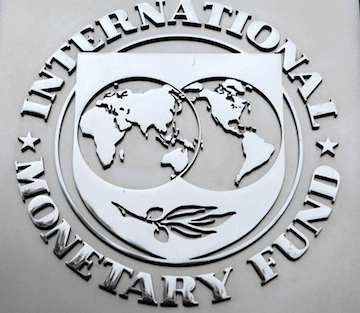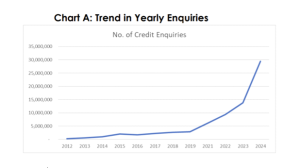
By Emmanuel ACQUAH-SAM (PhD)
On 22nd July, 2025, Ghana’s Attorney-General (AG) and Minister for Justice, Dominic Akuritinga Ayine, announced the government’s decision to discontinue the ongoing court proceedings against the shareholders and directors of defunct UniBank Ghana Ltd., opting for a negotiated settlement of about 60 percent of the revised figure of GH¢3.3billion debt they owed to the state. He mentioned that other negotiations were ongoing to safeguard state funds instead pursing uncertain and rigid legal proceedings. This debt resulted from the severe banking crisis experienced under the NPP Administration that led to the collapse of UniBank and other financial institutions between 2017 and 2019. The collapsed institutions were placed under receivership by the Bank of Ghana. However, the subsequent legal proceedings had become prolonged and complex.
The AG’s decision has provoked many critics nationwide and beyond, describing it as undermining accountability and the sanctity of the law; and more so he being the former lawyer of the shareholders of the bank had no moral right to go on that tangent. However, proponents argue that it would achieve faster debt recovery and economic efficiency (getting the most value possible from available resources) for national development.
This case highlights the critical intersections between law and economics within national economies, particularly in developing economies where legal, financial, managerial and economic efficiencies are rare.
This article seeks to invite students, lecturers, politicians, business managers, lawyers and the general public to explore how legal and economic principles intertwine to shape the business environment, national governance quality, economic growth and development, and help with quality discourse about the ongoing saga. It is also guided by likely thought-provoking questions bothering the minds of the public that require answers; questions such as “Are you suggesting that economic expediency should override legal justice? “Won’t this decision create a dangerous precedent where future offenders expect negotiated settlements instead of facing the full rigours of the law?”
Legal rectitude and economic efficiency
Within the framework of business and managerial economics, legal structures and rules are designed not merely to punish culprits but to align incentives and produce economically efficient outcomes, and probably so for their general applications.
From an economic efficiency perspective, the AG’s decision reflects an attempt to minimise the social costs of prolonged litigation. Litigation involves high transaction costs (Coase, 1960), including legal fees, court delays, enforcement hurdles and administrative expenses. These costs reduce the net benefit of pursuing full legal justice, especially when asset recovery is constrained or would yield diminishing returns after many years of legal battles.
The time value of money reveals that one cedi in hand today is worth more than the same amount when it is earned in a year’s time due to inflation, risk, uncertainty and the returns it may generate when it is invested today. Given this concept, the 60 percent negotiated by the AG can yield a higher returns when invested now than to receive the full amount after many years from now. Whatever the net payment will be, it appears profitable today than any other amount that will be received later.
The concept of opportunity cost is central to this case, particularly in the allocation of public resources. Resources such as time, funds and institutional capacity devoted to the case could be redirected toward more productive uses, such as recapitalising the financial sector, supporting macroeconomic stabilisation efforts or strengthening regulatory oversight to forestall future occurrence. By negotiating a nominal 60 percent debt recovery, the state is perceived to have accepted sub-optimal legal settlement in exchange for a faster debt recovery and more economic gains for higher societal benefit.
The case is not about overlooking managerial inefficiency and economic scandals but about making economically rational decisions within real-world constraints. From a bounded rationality perspective, managers and policy-makers operate with limited time, resources, cognitive power and information. In addition, the heuristics theory confirms that such limitations result in decisions based on mental quickness and rule of thumb under certainty, uncertainty and risk. These result in suboptimal outcomes. Therefore, management failures may not necessarily be due to carelessness. Hence, it may not be too wrong for the state to find appropriate ways of settling the litigation that would be mutually beneficial to both parties.
Finally, lengthy court proceedings do not necessarily guarantee the incarceration or recovery of the funds from the defendants in the end. From the perspective of the interconnection between law and economics, this approach is in sync with Efficient Breach Theory that postulates that sometimes a negotiated remedy yields an optimal societal and economic outcomes than legal rectitude that could derail economic progress.
Institutionalising strategic debt recovery to protect public funds
To ensure that such strategic interventions are perceived as credible, transparent, legally and systematically grounded, several policy and institutional measures must be adopted by the state.
First, a comprehensive legal framework must be enacted to provide clear guidelines and modalities for handling cases of embezzlement and misappropriation of state funds. Such a law should define the circumstances under which negotiated settlements are permissible, the criteria for assessing economic and public interest benefits and the oversight mechanisms required to guard against abuse. Codifying these processes in law would eliminate discretion-driven practices and promote consistency, fairness and public confidence in financial crime prosecutions.
Second, there must be a transparent mechanism for tracking and publicising the benefits of repayment agreements. The AGs, in collaboration with the Bank of Ghana (BoG) and other institutions, should institute quarterly reports detailing payments made by UniBank shareholders and other affected parties. This will ensure public accountability, allow civil society to monitor compliance and reinforce the credibility of negotiated settlements as an alternative to prolonged litigation.
Third, regulatory bodies such as the BoG, the Auditor-General’s Department, the Ministry of Finance and other supervisory institutions must shift toward proactive oversight rather than reactive punitive measures. Strengthening monitoring systems, conducting regular forensic audits and enforcing strict compliance with banking regulations can help detect irregularities early and prevent systemic collapses. A preventive regulatory approach will reduce the recurrence of such financial scandals, safeguarding public funds and stabilising the banking sector.
Fourth, the state should reconsider the blanket collapse of financial institutions implicated in misconduct. Rather than liquidating these assets entirely, government policy should focus on asset recovery and restructuring. Confiscated assets could be rehabilitated and sold to competent private investors or recapitalised to ensure their continuity as going concerns. This approach preserves jobs, protects depositors and retains the economic value of these institutions for national development.
Fifth, the nation must prioritise economic efficiency over rigid legal rectitude when dealing with financial and economic sectors crises. While the pursuit of justice is essential, it must be balanced against the need to achieve optimal economic outcomes. In certain cases, negotiated settlements that recover substantial portions of public funds and stabilise the financial system may serve the national interest better than punitive imprisonment of culprits, especially when protracted legal battles threaten to drain public resources and destabilise the economy.
Sixth, Ghanaian political parties and national governance structures must eschew political expediency and ensure that justice is applied impartially. It is imperative to dismantle the practice of shielding political cronies behind legal technicalities while weaponising the law against opposition figures. The credibility of any debt recovery strategy hinges on its non-partisan application and a genuine commitment to public interest above political convenience.
Ultimately, the nation must adopt a pragmatic policy orientation that prioritises the recovery and productive use of embezzled resources over mere punitive incarceration. A recovery-focused approach, anchored in legal clarity, transparency, institutional integrity and economic rationale, will not only safeguard public resources but also enhance Ghana’s financial governance and public confidence in the justice system.
Conclusion
The defunct UniBank Ghana Ltd. and AG debt settlement saga and other similar ongoing cases are a clear case of how law and economics intermarry to maximise business and national outcomes. Legal structures should aim not only to enforce rules, but also to promote efficient allocation of resources, incentive alignment, business confidence, national governance quality, and economic stability and growth. This requires the institutionalisation of debt recovery, a good design of settlement plans and communication strategies to promote public scrutiny. Furthermore, cases of clear criminal fraud must be prosecuted to ensure deterrence. The key is not to adopt a one-size-fits-all punitive approach, but to craft an enforcement environment that balances efficient recovery with credible future deterrence. Ensuring macroeconomic prudence today should not imply permissiveness tomorrow.
The writer is an economist and the Dean of the Faculty of Humanities and Social Sciences, Wisconsin International University College Ghana.
The post Legality versus economic efficiency: Evaluating AG and defunct UniBank Ghana Ltd. shareholders debt settlement saga appeared first on The Business & Financial Times.
Read Full Story
















Facebook
Twitter
Pinterest
Instagram
Google+
YouTube
LinkedIn
RSS